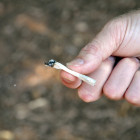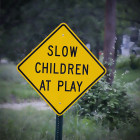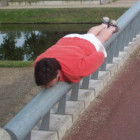
School Internet Filter Illegally Blocks LGBT Websites, Says ACLU
|
Students and teachers in Gwinnett County, Ga., schools hoping to find educational material about sexual orientation and identity are discovering that those websites are blocked by the school district’s Internet filter. The filter, administered by a private company, includes a category named “LGBT” intended to block access to sites that include information about lesbian, gay, bisexual and transgender issues. The American Civil Liberties Union of Georgia says the filter violates the First Amendment and the Equal Access Act, federal legislation that provides equal access to school resources for all extracurricular clubs. According to the Atlanta Journal-Constitution, the ACLU sent a letter to the Gwinnett school superintendent demanding the LGBT filter be removed or risk litigation. “The administration at Brookwood High School has always been really supportive," said Nowmee Shehab, a senior and the president of the high school’s Gay Straight Alliance. "But a few weeks ago the web filter system at our school was changed, and suddenly websites that I’d been using all year to plan activities for our gay-straight alliance club started being blocked.”
A Gwinnett school system spokesperson told the AJC that students and faculty may request access to some blocked sites.








